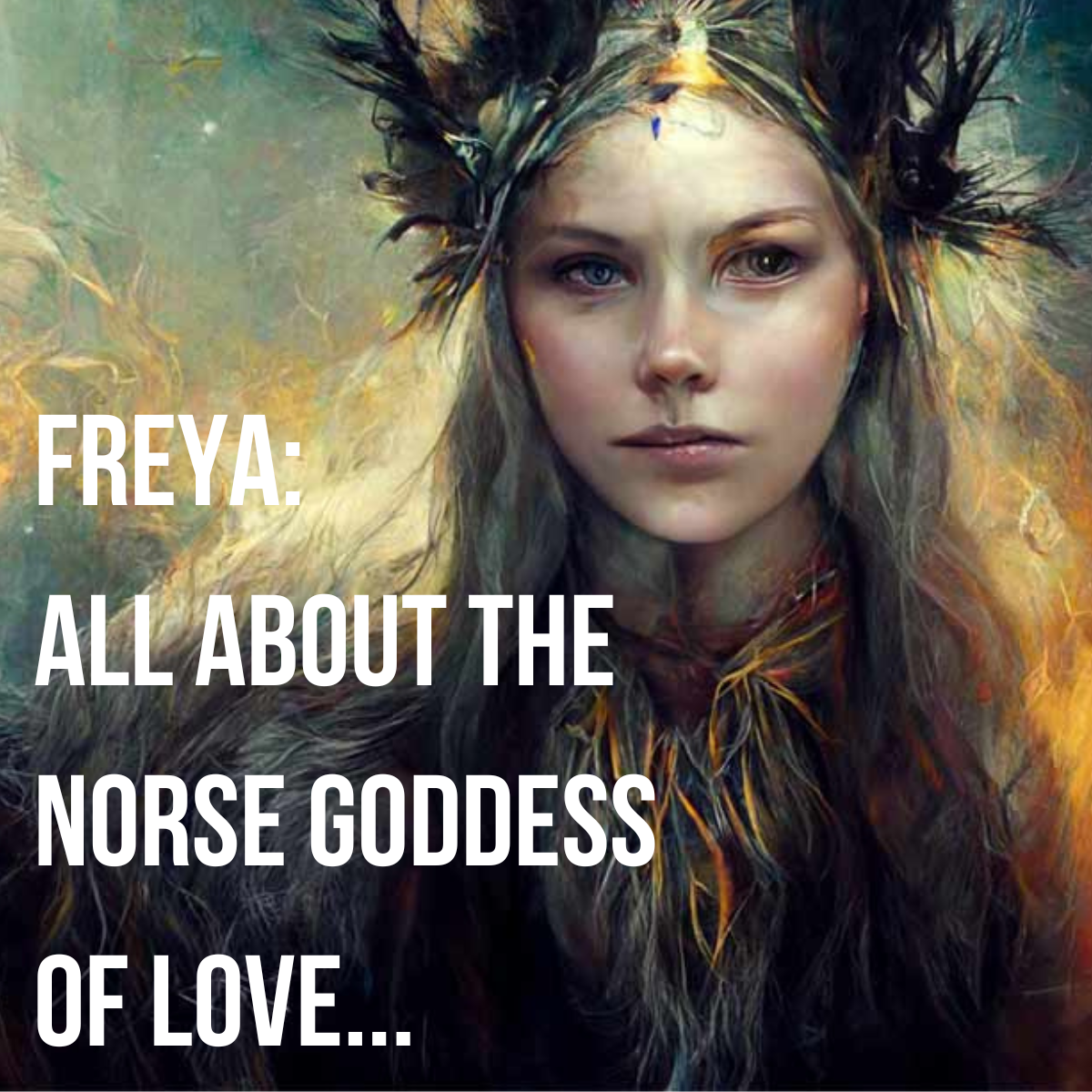Freya, or Freyja, is one of the most well-known Norse goddesses due to her charm, beauty, and symbolism of being a warrior woman who achieves her goals regardless of male help.
Her name, Freya, means ‘lady’ and represents all women, especially those with female independence.
Known as the Norse goddess of love, happiness, beauty, wealth, magic, war, and death, Freya is one of the oldest Germanic religions’ oldest goddesses. Their accounts that involve or describe her were the most preserved. However, there is still a lack of information since documents about this religious icon were transmitted or altered by medieval Christian historians, only to be rewritten again much later.
Source
Freya is the daughter of the giant Skadir and the sea god Njord. She has a twin brother named Freyr, and both compliment each other’s actions.
Freya is married to the god Óðr – whose name is not known for sure, in some places he appears as Our and in others Óðr, with the letter “d” written differently -, responsible for guiding the coach of the day, with whom he has two children, Hnoss and Gersemi. However, somehow, Óðr disappears, and so, according to legends, the goddess is always looking, both in heaven and on earth, for her lost husband. While searching, she sheds tears that turn to gold on land and amber in the sea, and for that reason, she became known as the goddess of wealth.
Features of Freya Goddess
The Norse goddess Freya is gorgeous and has many admirers, goddesses, dwarves and giants. Freya is a lover of jewellery and other fine materials with curvilinear shapes, which were often conquered using her enchanting beauty. She also has a great passion for poems and needs to listen to music for many hours.
Besides, the goddess Freya loves to travel, and for that, she uses her carriage pulled by two black or grey cats. However, she can also fly with her falcon feather cloak, which she often lends to other gods and goddesses in Asgard when they need to fly to other worlds.
Freya also has a boar called Hildisvini, which is also used to locomotion for the goddess. However, the stories say that this boar is her disguised human lover, Ottar. For this reason, Loki constantly accuses her of being immoral for riding on her lover in public.
Freya’s home
In Norse mythology, there is a place called Asgard, known as the home of the gods. It is in this place that the address of the goddess Freya, called Sessrumnir, is located.
According to this same mythology, all men who die bravely on the battlefield will live their after-death lives with the gods. Half of these warriors’ souls stay with Freya, while the other half is sent to Odin’s abode.
This division of souls happens because, when the day of Ragnarok arrives, all these souls will have to go into battle for humanity again. Because of this connection, Freya is constantly confused with Odin’s wife, Frigga. Still, the coexistence between them is limited to the organization of souls to form the new army.
Mythology involving Freya Goddess
Freya was mentioned briefly in Volva’s poem, one of the central poems of the poetic Edda that brings much information about the past and future events to the god Odin.
Still, Freya wore the Brisingamen necklace, a necklace representing the sun and the cycle of day and night, supposedly made of gold. The necklace was among the objects given to the gods by Alberich and was considered an object of great value and beauty. At one point, the god of cheating, Loki, stole that necklace, and when Freya became aware of the disappearance, he asked Heimdall for help.
Heimdall defeated Loki after a great battle, returning home and returning the necklace to the goddess. However, that moment marked a mutual hatred that in the future would lead to another final fight by Ragnarok.
Freya and the origin of the Runes
Runes are characteristic letters, used to write in old Germanic letters, engraved in stone or wood, which has become a form of oracle created by the gods.
Thus, Freya was responsible for discovering how runes could be created and used her wisdom to influence the fate of Odin. He sacrificed himself for nine days on the Tree of Life and later donated one of his eyes to create this oracle.
Still, the legend says that only Freya’s priestesses were able to read this oracle at the beginning of the runes.
Runes name interpretation!
Curiosities
In Norse mythology, the names given to the days of the week are inspired by gods and goddesses. Freya is associated with Friday, although there are contradictions that the goddess who gives names to Fridays is Frigga.
Because she is the goddess of fertility, many women looked for Freya when they found it difficult to become pregnant. Even today, many have the desire to be a mother but cannot pray or invoke the goddess asking for fertility. Check below the prayer and invocation to connect with this goddess.
Prayer to Freya Goddess
“Lady of Idisis, fertility, power, love and passion, help me find my way!
The Lady of women, the supreme goddess of the feminine, show me the key to magic and justice!
Lady of cats and war guides me through difficult times and gives me agility and courage to overcome my obstacles!
The Lady of wealth, give me pure and vital energy of your love.
My soul and heart belong to you, and I will honour your name forever!
In the name of the fire, air, earth and water, powerful Queen of the Vanir, most beautiful and dearest of all goddesses, pour out your blessings on me!”
